27, May 2023
How abductions finance separatists in Southern Cameroons 0
Abductions are a new fundraising method used by separatists, analysts say. More than 30 women were taken last week for “allowing themselves to be manipulated by Cameroon’s government,” according to the insurgents.
The latest abduction of over 30 women by separatists has caused uproar across Cameroon.
According to reports, they were forcibly taken from the village of Big Babanki, located about 25 kilometers (15 miles) west of Bamenda in the northwest of the country. Some were said to have been “severely tortured.”
The separatist gangs responsible for these kinds of abductions are all part of a moblike structure running the region, where insurgents are waging attacks against the government: They impose illegal taxes on locals, which they collect monthly from women, men and even children.
They also demand taxes from unmarried couples, and even force families to pay the equivalent of about €1,000 ($1,070) to bury their deceased relatives.
But dissent against the dissidents is growing: Ordinary citizens and civil society groups in Cameroon have expressed anger over the arbitrary way that separatists choose to run the region.
When residents refuse to be silenced, their leaders opt for violence, as was the case with the latest abductions: The women had reportedly refused to pay the illegal taxes imposed by the separatists and rejected a curfew imposed on them.
During the attack on the villagers, several of the women were reportedly injured; there were reports of violence and torture against them. Relatives of those who were abducted said they were anxious about their return.
Silencing women activists – for a reason
Ngongba Assumpta Lum, the founder of the Centre for Advocacy in Gender Equality and Action for Development, told DW that the kidnappings were deliberately aimed at trying to silence women in particular, as they are the ones who usually play a crucial role in crisis resolution in traditional and tribal societies in Cameroon.
“The kidnapping of these women in Babanki is a serious blow to us as civil society actors, especially as women-led organizations, peace advocates and organizations fighting for peace to return to the regions,” she said, adding that she feared that this surge in abductions over the past five years would yet get worse.
“I think as mothers, we are greatly touched because this situation is going overboard,” Lum added.
No trust in the government
Cameroon’s government said on Wednesday that a special military operation to rescue the women was underway. However, locals aren’t confident of a success, as it is the same government that these separatists are fighting.
Some of them had said the women were abducted for “allowing themselves to be manipulated by Cameroon’s government.”
But Sally Mbumien, a community leader in Bamenda, believes the actions of the fighters are an attempt to erode the power of women in Cameroon: “Not only is this politicizing our traditional institutions of women’s power, it is also an insult to womanhood, to motherhood and also it sets the wrong precedence,” he told DW, adding that this was “the worst thing that can happen.”
Yvonne Muma, a resident of Bamenda, said she felt angered by the kidnappings, telling DW that the abduction was tantamount to a sacrilege: “These boys have just raised the wrath of God by touching our mothers. They will have no peace until they confess,” Muma said.
Kidnappings: a new way of financing separatism
Cameroon has been plagued by fighting since English-speaking separatists launched a rebellion against the government in 2017. The dissidents say they want the region to secede from the area dominated by the French-speaking majority, and creating an independent, English-speaking state.
But the conflict has claimed more than 6,000 lives to date and has forced more than 1 million people to flee their homes.
With insurgents running out of funds to continue with their campaign — even despite collecting illegal taxes — analysts believe that resorting to abductions appears to be an attractive way to finance their operations.
“Now we have cases of mass kidnappings. Initially, there would be one or two individuals being kidnapped and ransom being asked,” human rights lawyer Agbor Balla told DW, adding that the number of abductions is skyrocketing.
According to Balla, tighter government controls on money laundering and the flow of illicitly obtained money have crippled the activities of the separatists.
“As government tightens financial flows, separatist leaders and sympathizers abroad … it becomes difficult to get the necessary financial support to fund” their activities, he said, adding that endeavors in certain Western countries in the fight against terrorism and its funding had also helped bleed the pockets of separatists dry.
Few rogue elements ‘abducting’ anglophone cause
Meanwhile, the concerns expressed by such separatist groups are regarded as valid: They allege that Anglophone speakers suffer political marginalization in Cameroon and lack the recognition of their cultural identity.
However, the more violent their methods become, the less sympathy they are likely to garner from outside observers — and perhaps also from their own people, even if these kidnappings and other violent acts are only carried out by a few rogue figures in their midst.
Balla said their campaign against the government is also plagued by infighting and fragmentation, making it difficult for separatists to show an organized, united front, which he argues is exactly what allows fringe elements to resort to kidnapping and abusing civilians.
“Because there is no central command and control, most of the leaders of the fighters on the ground are just made of a few persons or groups, and they need to fund their own struggles in their own communities,” he said.
With citizens in the separatist-held regions losing faith in the leadership of the fighters and refusing to pay their bogus taxes that help fund their operations, analysts like Balla fear the number of abductions could surge drastically in the coming months.
Culled from DW

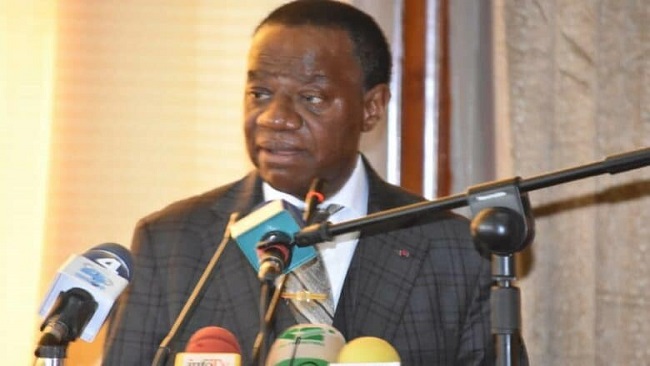
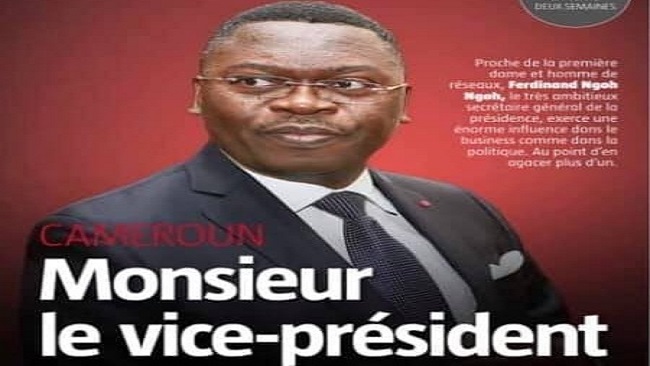



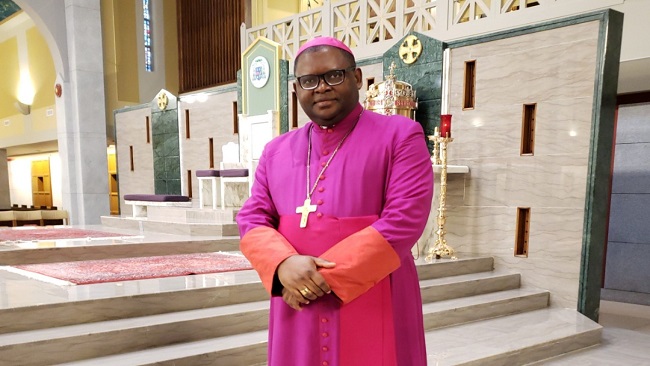
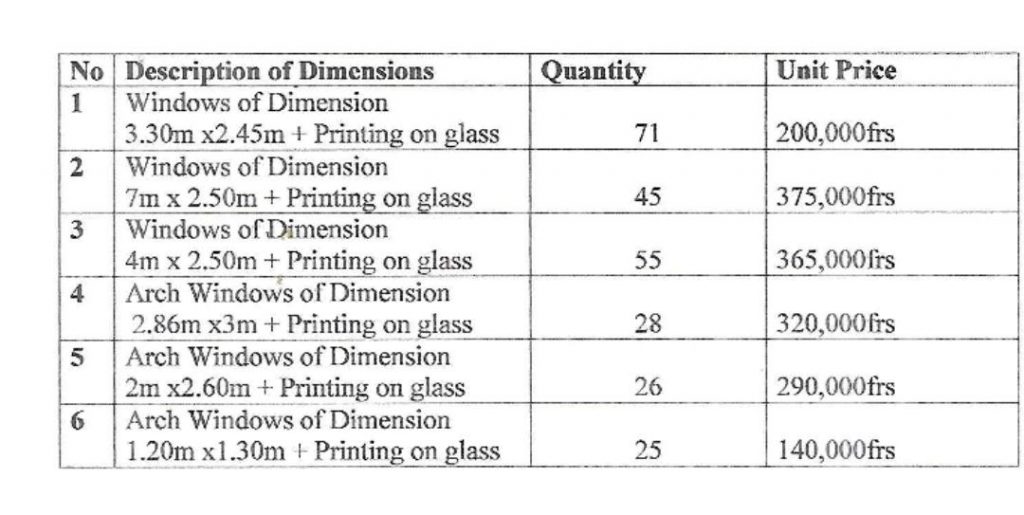














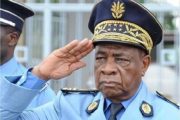





3, June 2023
From Cameroonian Soldier to American Airman 0
In September 2015, Bertrand Bucuka, a staff sergeant serving in the Cameroon special forces, gathered his military gear and changed into civilian clothes. From there, he traveled by bus for the next three days — heading to the nearest airport.
Bucuka served as a staff sergeant in the Cameroon Special Forces.
“I knew that if I were caught, I would spend the rest of my life in jail or be killed,” Bucuka said.
When he first enlisted in the Cameroon Armed Forces in 2009, Bucuka decided to pursue the military with the intention of serving his country. In his seven years of service, Bucuka worked several roles including infantry, communications and as an explosive ordnance disposal instructor.
Being from an English-speaking region of Cameroon, Bucuka also worked as an English and French translator and worked with U.S. military personnel.
In this position, his commanding officers would often ask him to spy on the American troops. Feeling that their request was unethical, Bucuka said he refused to obey those orders and added that building a trusting relationship in the field of EOD is critical.
“In the field of explosives, the first mistake is always the last,” Bucuka said.
In another instance, Bucuka’s leadership once again tested his ethics when he was ordered to execute an unarmed, injured man in Nigeria. Instead, he decided to seek help from a U.S. combat medic to help him save the man’s life.
“At the time, I knew that my decision to save one life might have cost me mine,” he said.
As Bucuka continued to deal with difficult decisions, and faced growing scrutiny from his commanding officers, he knew his life was at risk.
“It was time to either leave the country or stay in the military and die,” Bucuka said.
During his travels from Cameroon, Bucuka faced a number of challenges including being denied entry in Ecuador. With help from a stranger he met along his travels, Bucuka gained assistance from the United Nations Human Rights Council, eventually gaining entry in Peru.
He would go on to travel for the next six months — through South America and Central America. In that time, he endured life-threatening situations as he attempted to cross borders, sometimes with the help of smugglers.
In some countries, he was arrested and detained at the border but was later released after explaining his story.
In February 2017, Bucuka arrived at the United States-Mexico border, near San Diego. He explained his situation to the U.S. Customs and Border Protection officers, and then worked with the Department of Homeland Security and the FBI to verify his case.
“[How I made it] is beyond human reason,” Bucuka said. “I just knew there was no turning back for me.”
Following a two-month investigation, the officers released Bucuka and allowed him entry into the U.S. In 2018, the U.S. officially granted Bucuka asylum.
Now, he finds himself wearing another military uniform — this time for the United States Air Force.
For Bucuka, joining the Air Force was a way for him to thank everyone who helped him when he arrived in the United States, including a number of U.S. military members that he worked with in Africa.
“The only way I could show my gratitude to [those] who stood by me was by serving the flag of this nation,” Bucuka said. “I had no family, no relatives and they remembered what I did for them in Africa and came to my rescue here.”
Today, Airman 1st Class Bucuka, is an enlisted aerospace medical service specialist assigned to the 1st Special Operations Medical Group at Hurlburt Field. Bucuka works with doctors and helps to provide care to patients at the base medical clinic.
Compared to his previous experiences in the Cameroon military, Bucuka says he never expected that someday he could end up working in a hospital setting.
“All I knew from my past experiences was being on the battlefield, but today, I find myself working in the same place every day,” he said.
Along with serving his role in aerospace medical services, Bucuka also finds himself drawing from his past military experience in Africa.
As an Airman assigned to Air Force Special Operations Command, Bucuka often gets the opportunity to conduct briefings with special operations forces across a variety of career fields.
“The main objective is to share my experience and what the U.S. can do to better strengthen their relationship with Africa,” Bucuka said. “And it’s actually helped them carry out their mission successfully when they have deployed.”
Beyond the military, Bucuka hopes to always find an opportunity to serve others and mentioned he wants to use his new-found medical skills to support humanitarian efforts.
Additionally, he says his future is now focused on his family, including his children who have joined him in Florida.
No matter what, Bucuka knows that his journey changed his life forever and has ultimately changed his outlook on life.
“I realize now that what is meant to be, will be, no matter what,” Bucuka said. “That’s how I live my life now.”
Culled from af.mil/news